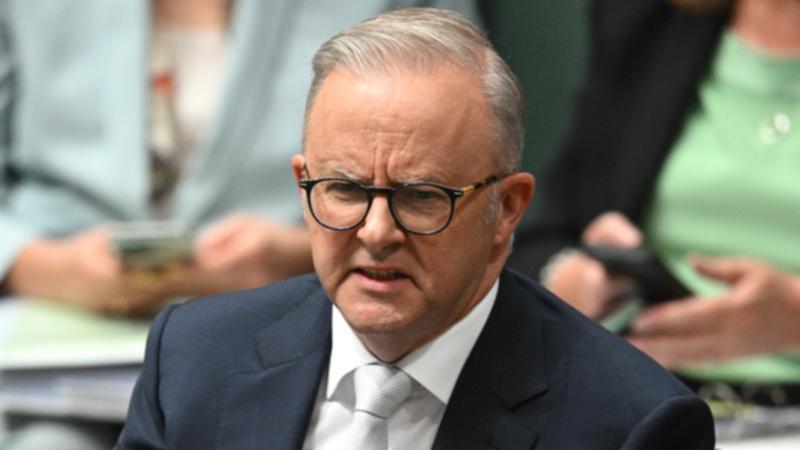Anthony Albanese encouraged to lean on trade, military ties in Donald Trump tariff exemption call

Businesses are concerned Australian jobs and living standards are under threat from tariffs threatened by Donald Trump.
Fortuitous timing, then, that Prime Minister Anthony Albanese already had a phone link up with the US president scheduled for Tuesday AEDT.
Mr Trump promised to impose blanket 25 per cent tariffs on all steel and aluminium imports to the US en route to the Super Bowl in New Orleans on Monday.
Sign up to The Nightly's newsletters.
Get the first look at the digital newspaper, curated daily stories and breaking headlines delivered to your inbox.
By continuing you agree to our Terms and Privacy Policy.If he followed through on the threat, it would have significant implications for Australian industry, said Minerals Council of Australia chief executive Tania Constable.
“These proposed tariffs set a concerning precedent,” she said.
“Action is needed now to ensure that trade restrictions do not expand to critical minerals and other resources that are vital to Australia’s economic future and global supply chains.”
Government officials have been attempting to secure an exemption for Australian exporters for months but Tuesday’s phone call will be Mr Albanese’s first opportunity to plead Australia’s case directly to the president.
The pair have not spoken since a brief congratulatory phone call shortly after Mr Trump’s election in November.
The Business Council of Australia had some advice for the prime minister to help win the president over.
Free and open trade contributed to lifting Australians’ quality of life and supported one in four jobs, BCA chief executive Bran Black said.
“Australia has a good story to tell - the US has a trade surplus with us and we have long-standing cultural and military ties between countries, particularly with the significant AUKUS agreement,” he said.
The two nations’ military alliance was further strengthened on Saturday when Australia paid the first $800 million down payment to the US as part of the AUKUS deal to deliver nuclear-powered submarines to Australia.
Opposition trade spokesman Kevin Hogan said it was another instrument in Australia’s toolbox to cement a tariff exemption deal.
But he cast doubt on the ability of Australia’s ambassador to the US, Kevin Rudd, to secure a deal.
“Does anyone really think that he’s in a strong position to negotiate this for us, given the reputation he has over there?” Mr Hogan told Sky News.
Mr Rudd’s appropriateness as ambassador has been questioned after comments critical of Mr Trump, labelling him a “traitor to the west”, surfaced on social media.
Even if Australia fails to receive an exemption, the impacts to its economy are unlikely to be catastrophic.
AMP chief economist Shane Oliver said it would be bad for Australian steel and aluminium producers but, with exports to the US at just 0.03 per cent of Australian GDP, the macro-economic impact would be minimal.
Australian exports of iron and steel to the US valued $US237.5 million ($A378.9 million) in 2023, while aluminium exports valued $US316.9 million ($A505.5 million), according to the United Nations COMTRADE database.
The real risk to Australia’s economy came from reduced global trade, Dr Oliver said.
